
Reducing the use of plastic when traveling is absolutely essential, given the impact of tourism on plastic consumption in certain countries. Tourists from developed countries have far more polluting consumption habits than people from certain developing countries, not to mention the fact that travel is one of the biggest sources of pollution.
1. Use accessories that reduce plastic use

There are a number of accessories that can help you reduce your use of plastic when traveling. But be careful not to fall into the trap of consumerism, i.e. buying too many zero-waste accessories, even when they don't meet a real need, and thus producing even more waste.
Here are a few zero-waste accessories that could really help you reduce your plastic consumption when traveling:
- A make-up remover oil (to avoid wipes),
- A bamboo toothbrush,
- Toothpaste tablets,
- Solid soap and shampoo,
- Soap pouch,
- Reusable ear pick,
- Menstrual cup,
- Tote-bags and other reusable bags,
- Washable sponge,
- A filtering straw,
- One or more water bottles,
- Pocket ashtray.
2. Carry several canvas bags
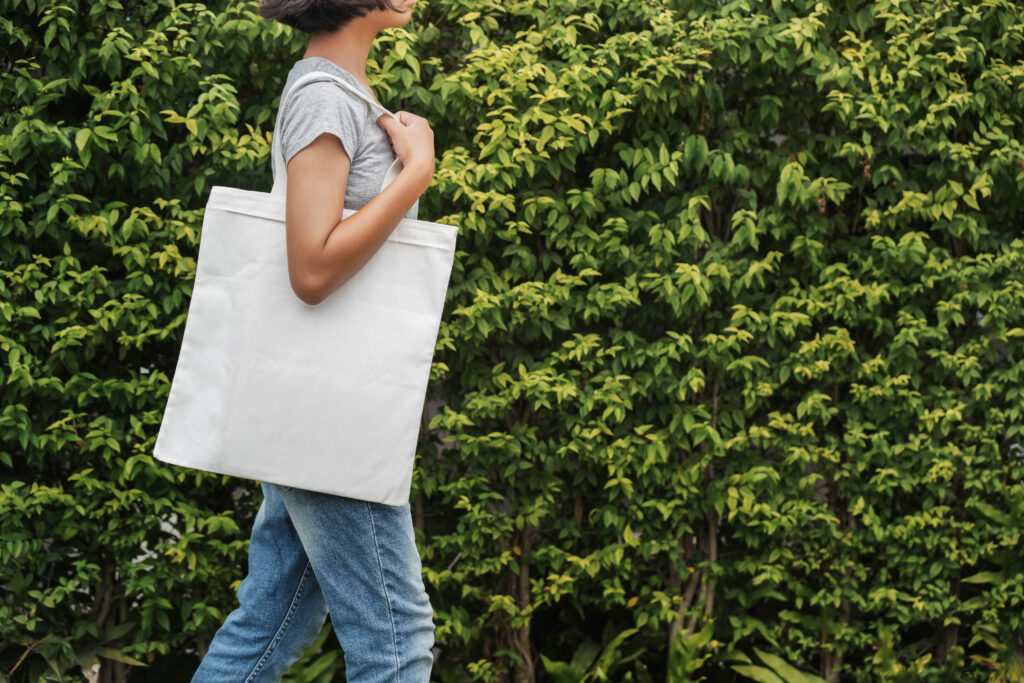
Drastically reduce your use of plastic when traveling, as it serves several purposes. First of all, it allows you to refuse the plastic bags you'll be offered when shopping or buying souvenirs.
As well as saving you from consuming plastic, having a reusable bag with you at all times means you'll always have your own personal garbage can to hand. This way, when you're traveling in a place where there are no garbage garbage cans, and especially in nature, you can take your waste with you to dispose of it later.
Finally, having a bag with you at all times has one last use: to pick up other people's garbage! When you're out walking, whether in natural or urban areas, you may come across a lot of garbage. Picking it up is up to you, and this simple gesture will enable you to reduce your ecological impact when traveling, having a positive impact on your destination, rather than a neutral or negative one.
3. Sleep in eco-hotels
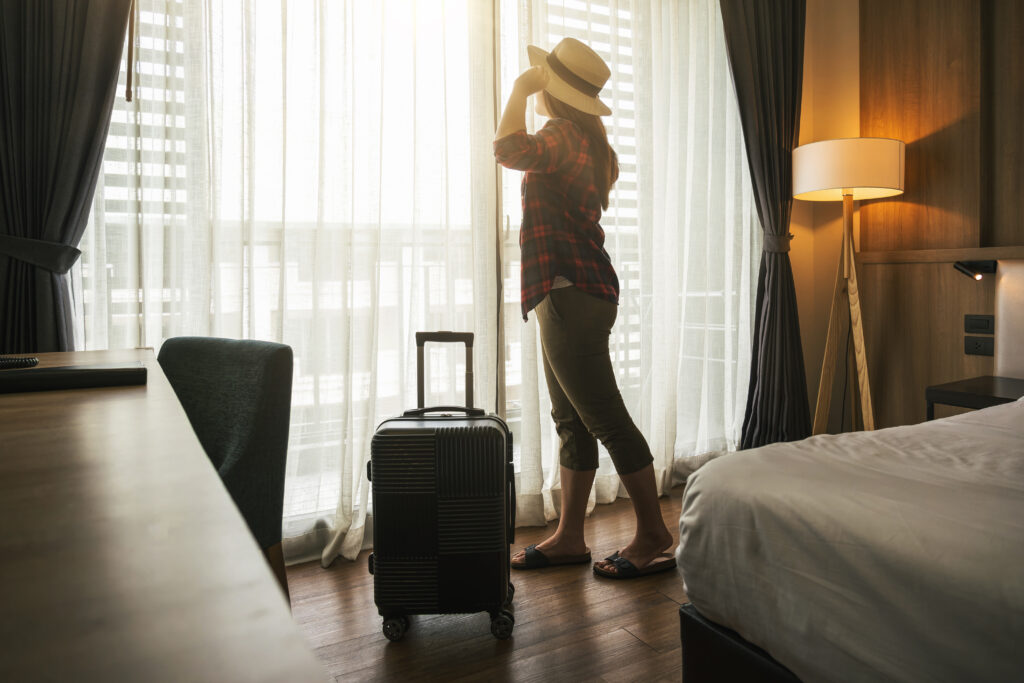
During a trip, accommodation is indirectly one of the biggest sources of plastic pollution. Single-use soaps, individual breakfast wrappers, cleaning products in plastic bottles... Hotels, youth hostels, apartments and other lodgings consume an enormous amount of plastic.
Fortunately, you can opt for eco-hotels or other ecological establishments that are committed to reducing plastic waste. For this, you can rely on various sustainable travel labels, such as the Clé Verte or the European Ecolabel, which guarantee that the accommodation complies with strict specifications.
4. Eat local

Reducing your use of plastic when you travel also involves eating locally. So whether you're eating out or cooking your own meals, eating local is one of the best solutions. Local restaurants tend to use local producers, who don't pack their food as much, since it doesn't have to travel much. Conversely, restaurants serving foreign cuisine often have to import a lot of food, not to mention fast food and its single-use packaging. Likewise, if you're cooking for yourself, products from the local market will have far less packaging than those from the supermarket. As well as helping to reduce your use of plastic, eating locally also helps to reduce your carbon footprint, as ingredients travel less before arriving on your plate.
5. Avoid plastic bottles
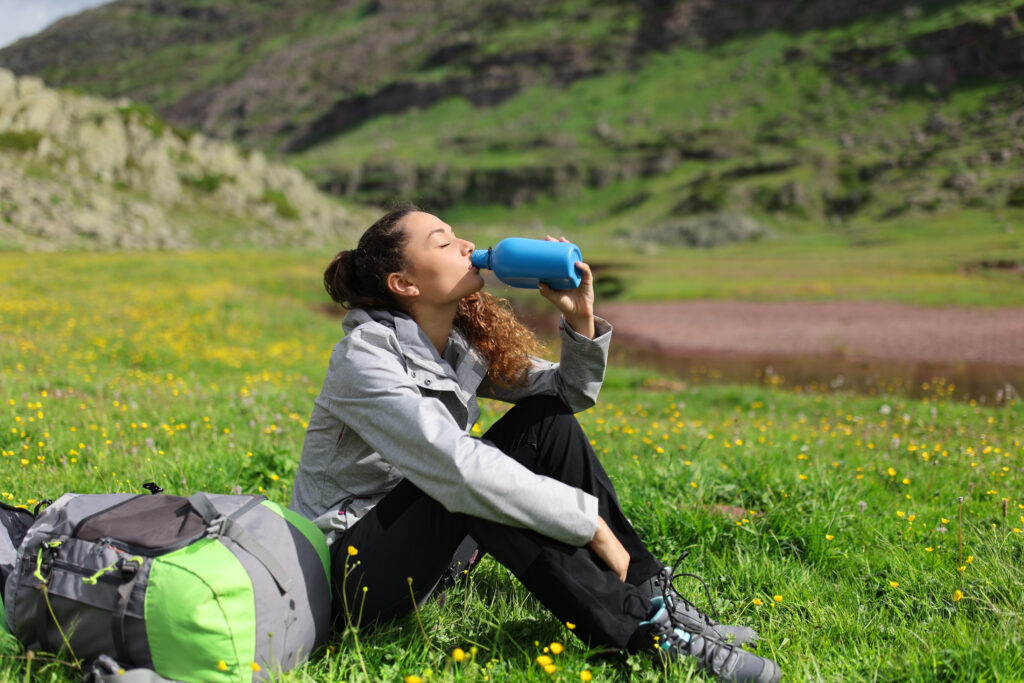
Your first reflex should be to check whether your destination has access to drinking water, and to consume it whenever possible.
In countries without access to drinking water, avoid plastic bottles wherever possible. Use a filtering straw to make any water drinkable. You can use it directly in watercourses, or to drink water from your flask that you've filled from the tap. Finally, when you have no other option than to buy a bottle of water, opt for a glass bottle, since most countries offer an efficient deposit or recycling system.
6. Avoid unnecessary travel souvenirs

Bringing back travel souvenirs leads us to systematically try to buy something, regardless of our real needs. Many travel souvenirs end up collecting dust at home. To avoid unnecessary over-consumption, only bring back souvenirs that meet one of your real needs.
7. Use local craftsmen
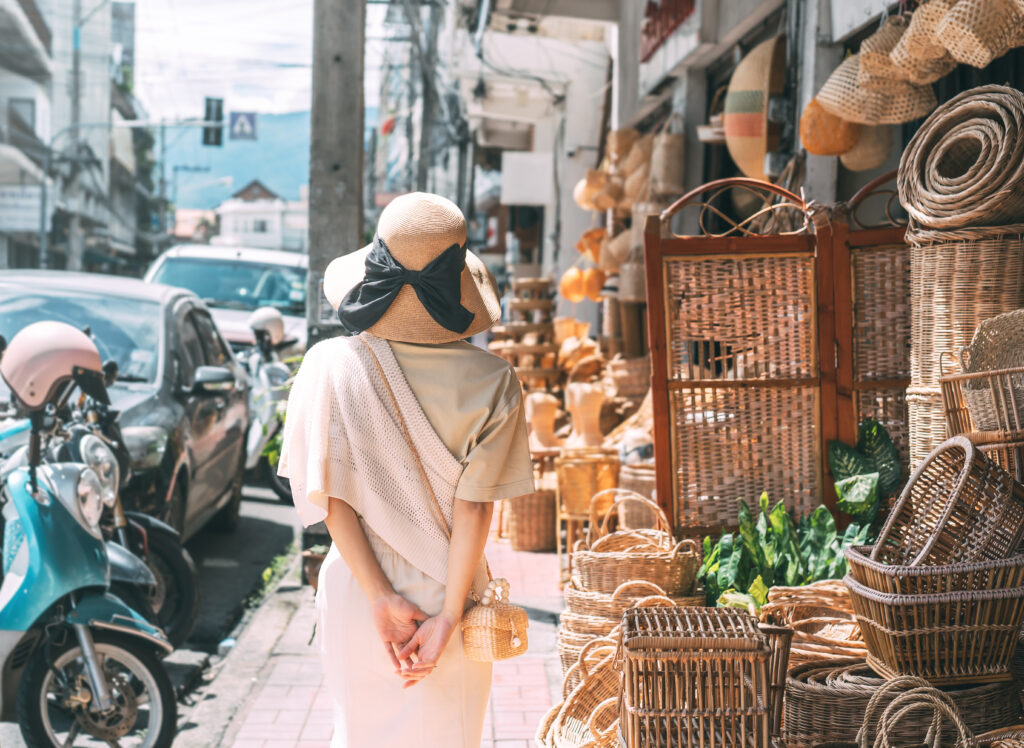
If you still want to bring back travel souvenirs, or anything else you need, use local craftsmen wherever possible. In addition to supporting the local economy, this consumption habit helps reduce plastic consumption when traveling. Indeed, artisans more often use natural materials, and often avoid plastic packaging. Conversely, many industrial souvenir stores offer plastic objects, often packaged and imported from far away. So, beyond limiting your waste production, using local artisans is also an eco-responsible travel tip that helps reduce your carbon footprint.
8. Put together a zero-waste toiletry bag

When you're traveling, your toilet bag is often full of plastics, which are all the more harmful because they're almost all single-use! To create an eco-responsible toiletry bag, start with some of the zero-waste accessories mentioned above. And don't forget the many refillable products. In addition, avoid the travel-size toiletries offered by many brands. These small-capacity packages add unnecessary plastic consumption to your trip. Instead, take a few small portions of your usual cosmetics home, packing them in miniature jam jars , old cosmetics bottles or mini glass bottles.
9. Take part in waste collection walks
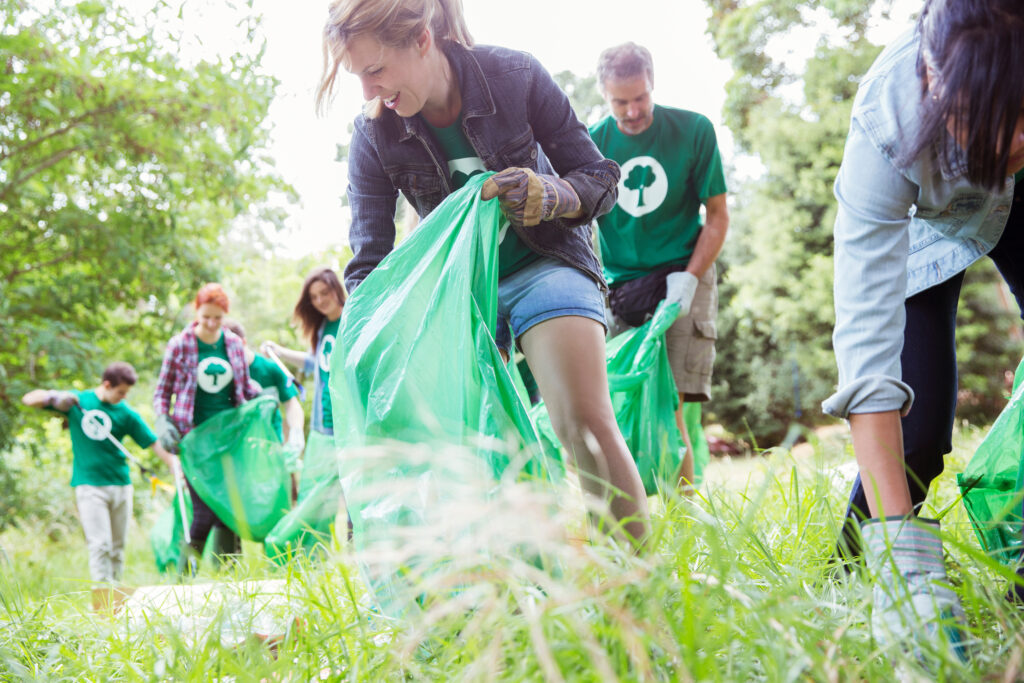
Reducing your use of plastic when traveling can have a neutral impact on your destination, but picking up litter that's already there can have a positive impact! All over the world , clean walk initiatives. The idea is to organize a group clean-up of a specific area: beach, street, forest, park, river, pathway... These initiatives are generally organized by associations, but can also be spontaneously organized by citizens, or sometimes by businesses. Some restaurants, cafés or stores offer discounts or free products to customers who bring back a bag of waste. To take part, all you have to do is ask locally, consult associations and the local tourist office, and look out for local events. If there's no such event, there's nothing to stop you creating one on social networks, or doing your own clean walk, without relying on anyone else!
10. Recycle and consign
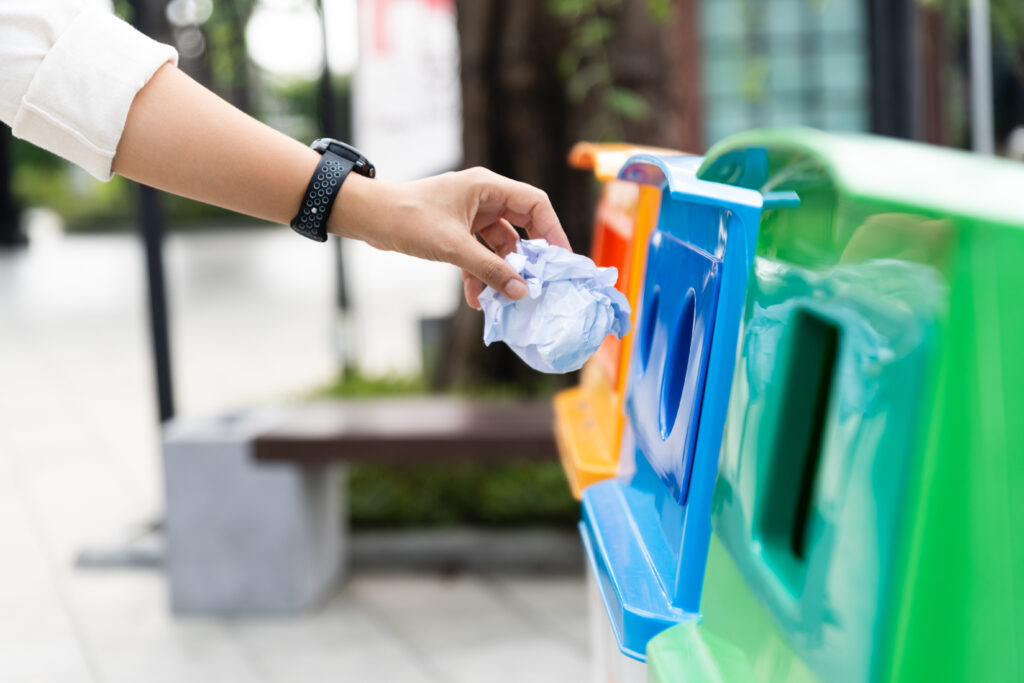
Despite all these efforts to reduce the use of plastic when traveling, the production of certain types of waste is sometimes unavoidable. When this is the case, remember to recycle your waste. Most developed countries have an efficient recycling system. Even more countries have a deposit system: product packaging can be returned in exchange for a small fee.


